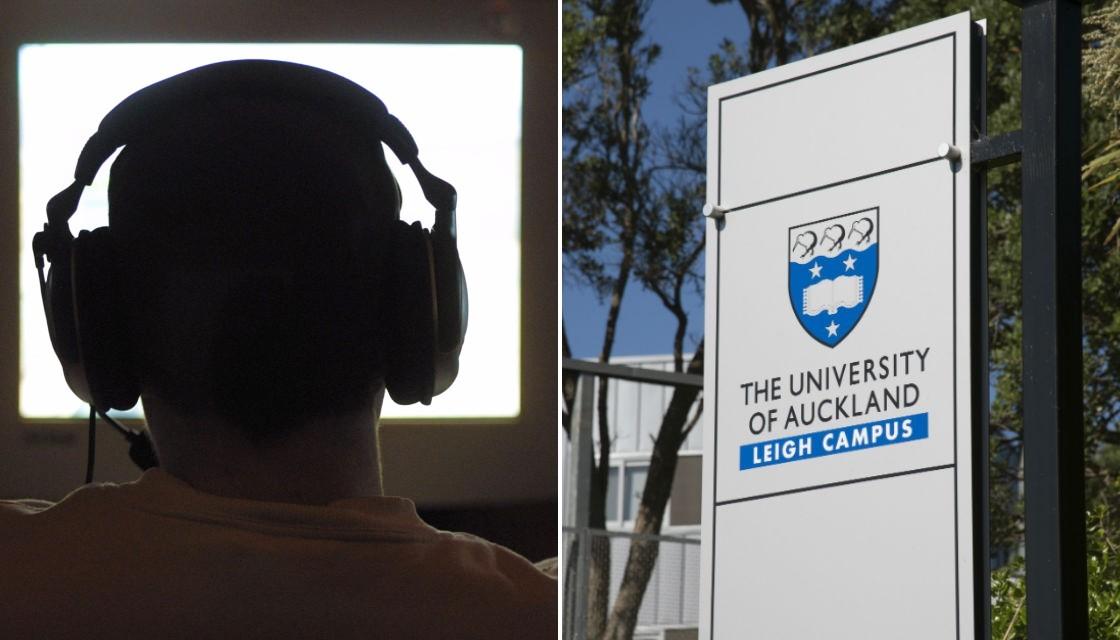
Students taking a first-year philosophy paper at the University of Auckland have been told they're in danger of being targeted by "Chinese government agents" if they discuss topics including Tiananmen Square and the Hong Kong protests.
The warning was posted to the university's Canvas website, a course material database, by a lecturer of the paper PHIL105: Critical Thinking.
"We advise students not to bring up topics [in discussion] that may endanger them, such as Tiananmen Square; Uighur concentration camps; Hong Kong democracy; Taiwan; Tibet; Falun Gong; criticism of Xi Jinping, etc," the post read.
Some University of Auckland students taking the paper are currently in China, unable to physically be in New Zealand due to the COVID-19 border restrictions. The post is believed to have been aimed at them, not students studying in New Zealand.
"This course will be taught at two Chinese campuses this semester, and so we expect that Chinese governmental agents will have access to this material," a screenshot of the post uploaded by student magazine Critic read.
"If you are from China, have family there, or plan to visit or do business there in the next few years, be aware that your activity may be monitored. This particularly applies to the weekly discussions. We advice students in this situation not to bring up topics that may endanger them."
One student taking the paper told Critic the were "f**king spooked", and questioned why the university would "set up a program they knew could endanger students".
According to the university's website, PHIL105: Critical Thinking aims to help students improve their "skills at giving and assessing reasons for beliefs and actions".
A spokesperson for the Univesity of Auckland confirmed they are "aware of the note to students" but did not see it as "suppressing free speech".
"[It's] rather a general warning to all students that social media comments and conversations can last long beyond a class discussion and may not be appropriate out of context," the spokesperson told Newshub.
"The University of Auckland has strong relationships with many partners across the globe including a number of Chinese Universities. These enhance our learning and research and provide our students with an international experience and networks.
"We also understand that there are cultural differences across many of our international partners and our academics have the freedom to address these as they see fit. This is part of our role as critic and conscience of society."
Matheson Russell, another member of the university's philosophy department, said on Twitter the Chinese government shouldn't have any influence over what's taught in New Zealand universities.
"If the freedom of students to freely discuss ideas in our universities is compromised we will be in a dire situation."
He was responding to a tweet by University of Canterbury academic Anne-Marie Brady, who believes she's been the subject of a campaign of intimidation from Beijing.
"The message given to students in PHIL 105 reflects the contradictory and very unsatisfactory situation we are placed in being required to teach into China," said Dr Russell.
"It is certainly not an endorsement of that situation or acquiescence to it. I hope this receives further scrutiny and that hard questions are asked of our unis."
China is famously skittish about international coverage of topics deemed off-limits inside its borders.
AUT last year reportedly cancelled a Tiananmen Square commemoration after being contacted by the Chinese embassy. AUT said it was just a coincidence, and that the event was cancelled because a staff member didn't follow the right process in booking the venue.
"I think [it was a] request but it could be [an] order given the fact that China in the past has not been above withdrawing students from institutions where those institutions incur their displeasure," Otago University international relations expert Prof Robert Patman told The AM Show last year.


